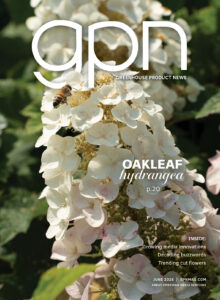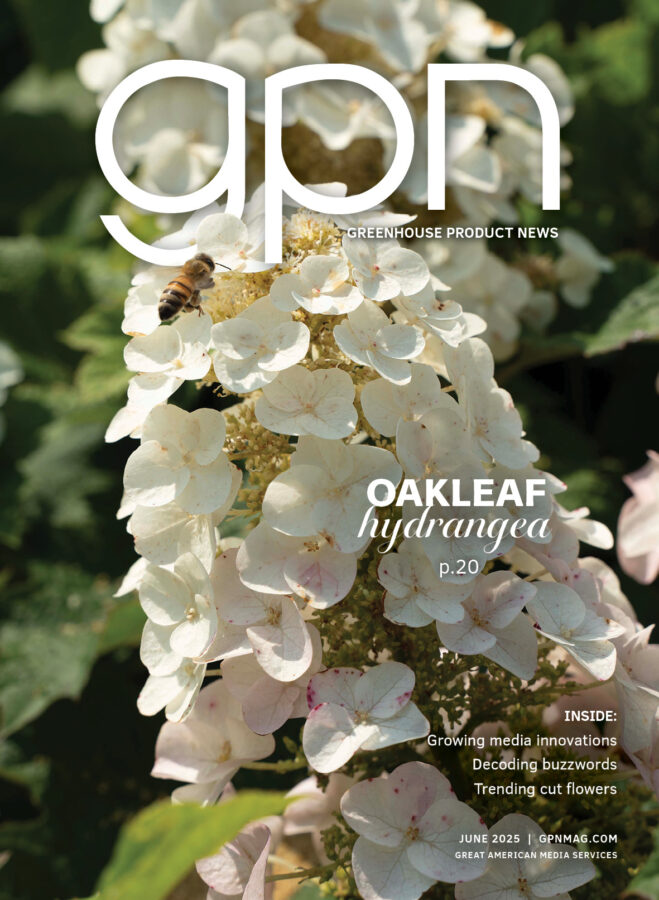Preparing for Disaster
It seems like every year we hear about some natural disaster or another — the Midwest with their tornadoes and ice storms, the East Coast with hurricanes, flooding just about anywhere but especially the Gulf Coast, and the West with wild land fires. Wherever your greenhouse/nursery may be located, just how much are you prepared? Can you weather any storm?
It is important that you and your team come up with a plan or plans for different situations and run periodic drills/reviews so everyone in your organization will know what to do. Do you have insurance to handle the events you cannot prepare for, like a greenhouse fire or a winter storm that destroys your structures? If you don’t plan for disasters, you cannot limit their impact and you may find yourself facing a crossroad. What will happen then?
PREPARATION IS KEY
No doubt Mother Nature deals us some pretty tough events to overcome. We just have to be prepared for “whatever” so we can have some control to minimize the damage. We were at a greenhouse a few years ago, and the year before they had a fire break out in the early morning. It did some major damage before it was put out. The general manager told me after that happened he had the idea of putting fire sprinklers in throughout the facility. He said it was rather easy because they just tapped into the already existing water line. How much better would it have been if he had made the decision before the fire occurred?
If you are in a remote site as many operations in our industry are, you may not have the optimal response time for the county fire department to arrive in time to save the greenhouse. I know of another greenhouse that bought its own “Water Tender” fire truck. This just sits on their property until its needed.
As a large organization, it should be in your annual company training to have a “fire drill.” Remember when you were a kid at school! If you are the owner, sit down with your insurance agent and make sure you have the coverage you need. Every year we get new things and get rid of old things, so you should not be paying insurance on something that is no longer available. Last thing you want to be doing is overpaying for insurance coverage!
Another disaster is if OSHA, the fire department or other authority inspects and you fail. Do quarterly (or at least annual) walk-through inspections yourself. Ask your managers to walk with their team, and, in turn, you walk with your managers.
Listen to your employees. Make sure all emergency exits are clearly labeled, visible and clear for use. Perform preventative maintenance rather than waiting for something to fall apart. This applies to a simple water leak or spill as well as pesticide storage issues or hazardous waste disposal. Prevention is always less costly than replacing something and paying fines.
NOT-SO-NATURAL DISASTERS
Disasters don’t limit themselves to natural ones. How about a computer system crash for a potential disaster? With the cloud now being used as an information/data back-up, we can back up our important documents to an off-site location. Don’t lose your data before you decide that backing it up is a good idea. This can all be automated easily and one more task is off your mind or to-do list.
Another disaster that we all need to be prepared for is loss of a key employee. It might be a health issue (even death), change of jobs or just advancement into another position. Do you have a “succession” plan or at least a plan of who will handle their tasks until a permanent solution is achieved? Unless you are a one- or two-person shop, it pays to have people cross-trained so somebody can jump in and handle at least some of the duties. This will keep a situation from becoming a big income loss. Actually a one- or two-person shop (like ours) means everyone is trained to do all things.
Once you have made it through a disaster of any nature, you need to recognize the work of all employees. Disasters of all levels and forms affect all of the employees. Everyone has likely risen to the occasion to make the losses minimal. Reward everyone with a party, small bonus, gift card or some other recognition. Whatever suits your fancy and makes your employees feel appreciated. A little can go a long way — say “Thank you!”









 Video Library
Video Library 


















